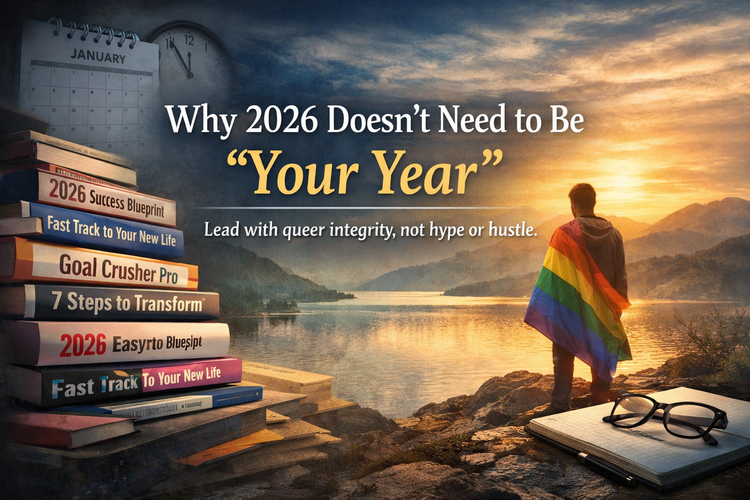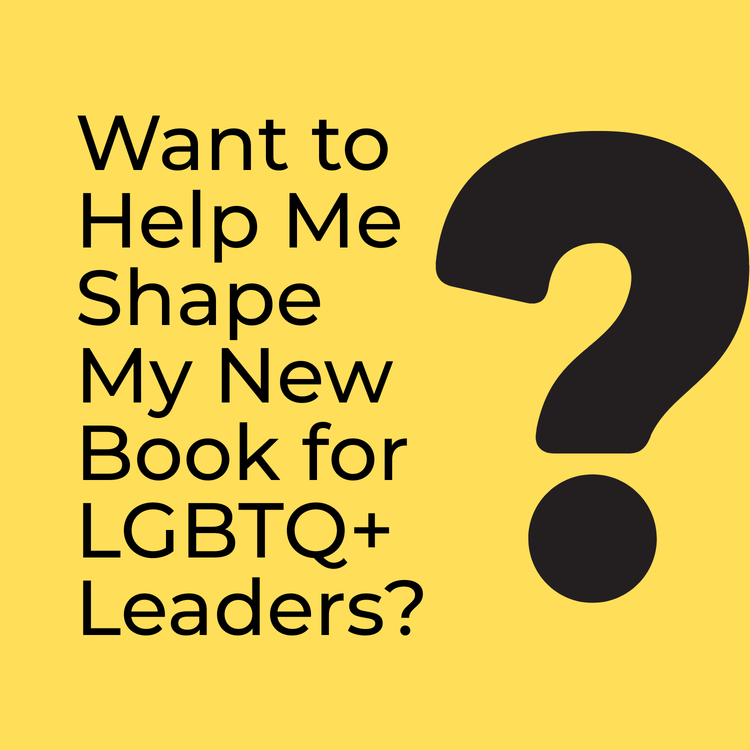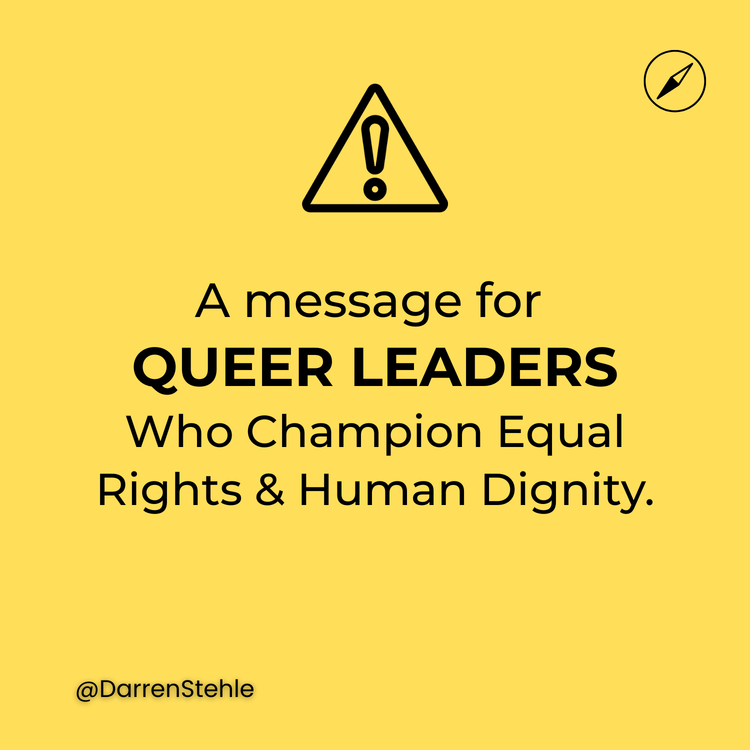How Do You Choose to Lead a Moral Life?

There’s a massive difference between the moral and ethical teachings in the Bible and the moral and ethical ‘Way’ described in the Tao Te Ching.
In fact, if you noticed the way I used different words in that sentence, you’ll see what’s coming next.
But first, many people blur the lines between morals and ethics, which are key distinctions for how we can lead with queer integrity.
So, briefly,
Morality is personal—the inner compass shaped by your experiences, values, and sense of what feels right.
Ethics are collective—the principles, codes, and standards we agree on to live together harmoniously.
When we act morally, we act in alignment with our conscience and convictions.
When we act ethically, we honour the shared community and social agreements that protect dignity and fairness.
Leadership—and especially queer leadership—asks us to navigate both.
Returning to the Bible versus the Tao Te Ching: are you ready to rumble?
The Bible can be didactic and dogmatic. In the Old Testament, you’ll read statements like, thou shalt not do this or that. The Bible even has a set of 10 Commandments, as well as stories of an angry, vengeful God who directs his believers to do things like kill their children.
Just stop there for a moment and consider why those stories and ideas from 2,000 years ago could be used to guide contemporary ethics.
The Tao Te Ching does not propose to tell narratives, make definitive statements, judgments, or declare what’s right or wrong. There is never a direct statement speaking to the reader. There is no single commandment, dictate, or dogma expressed, let alone an ideology.
What makes the Tao Te Ching radically different from the bible is that the Tao Te Ching’s teachings are timeless wisdom. This is not to claim that the bible is devoid of wisdom. However, I find it difficult to reconcile the value of a book as a guide for morality and ethics that is so grossly misunderstood and blatantly misrepresented to serve polarizing and inhumane narratives about right and wrong.
But for many people, the bible is easy. However incorrect the translation, or whatever choices we made about what books to leave in or exclude, the bible can be used to tell you what to do.
Alternatively, the greatest challenge—and the greatest gift of the Tao Te Ching—is that it requires the reader to think for themselves.
The reader is guided to view the natural order of things as a way of determining what’s right and wrong for the greater good. This is primarily done through metaphor and demonstrating the paradox of how we exist in a (perceived) world of mutually arising polarities. The Tao Te Ching shows that opposites arise together—that right cannot exist without wrong, nor good without bad. Each defines the other; neither stands alone.
This is The Way (the Tao)—the way of traversing the middle path of polarities.
We cannot run from good or bad.
We are, all of us, both of those moral perceptions. It is here that we determine how we should act morally and ethically. If I do X, will I consider that good or bad? If someone else does X, will my community consider that right or wrong, and to what degree?
Everything is connected.
That sounds oh-so-new-age, but it’s not. This idea of oneness is timeless, and you find it in all the great ‘spiritual’ texts. The bible will claim that you are ‘of god.’ The Tao Te Ching makes it patently clear that we are all part of this natural evolution of things—birth, life, death, and repeat—just like the rivers flow into the ocean water evaporates into the sky, to return as rain which feeds the rivers.
Even physics reminds us that everything in the universe is made of constantly moving and interacting atoms. Energy never disappears, it only changes form. In that sense, we’re all part of one continuous flow of matter and energy, always transforming and interconnected.
This flowing, connected, and constantly transformative nature of all life invites us to find the path of least resistance, a natural and almost effortless path of virtue that’s easy to navigate—the moral expression of taking care of oneself, which is the ethical respect for the greater whole.
Which way of moral living would you prefer?
What form of ethical leadership would you cultivate?
Would you choose the path of someone else’s rules and ideology, allowing someone else to control you?
Or would you prefer the way of personal responsibility and commitments for the greater good?
I would argue that there is no integrity in following someone else’s rules—especially if you obey those rules on blind faith. Doing so alleviates personal responsibility and dissociates the follower from the larger social collective and human fabric.
To lead with queer integrity is to stand in that paradox, to hold both personal truth (morals) and collective care (ethics) without collapsing into conformity or resistance.
This is why leading with queer integrity is so important. We shouldn’t have to show up to remind people that we are here, that we are queer, and that we belong—but we do. And if we don’t, we risk erasure.
Showing up with queer integrity means you are taking responsibility for your freedom to be all of who you are, and also that you are part of the oneness and the connection with all that is.
No one can erase what is. Like the river into the ocean metaphor, we’ve always been here, and we always will be.
Leading with conviction isn’t easy—especially when the world prefers conformity.
If you’re struggling with how to stand firm in your values without backing down or causing contention, I invite you to a free coaching conversation.
We’ll explore what it means for you to lead ethically, authentically, and with conviction—even when your integrity as a queer person is tested. You’ll leave the session with a clear path to how you create real change and advance equity for our common humanity.
📆 Book your free coaching conversation.





Member discussion